
My first assignment for my local paper was shot on film; I came into the newspaper industry in 20062007 in my late teens and at the point of the film/ digital transition. Most local papers were still shooting on film. Since then, I’ve always had a film camera but haven’t always used it frequently.
I picked up a film camera again in 2019 and would seldom shoot personal work on it. After the pandemic I started shooting with a medium format film camera alongside my digital camera at weddings. I wanted a challenge, I wanted to simplify the process. The volume of images people expect now from a wedding still to this day doesn’t make sense to me. Less is more, in my opinion. Pre-digital wedding photographers would often shoot 12, perhaps 24, images at a wedding. The biggest skill as a wedding photographer in my opinion is knowing when not to take a picture.
Things to consider
Nowadays I will always shoot film at a wedding. I will shoot three to four rolls of Kodak Gold 200. Kodak Gold has such a lovely warm tone to it and it’s affordable. Once shot I then use my local lab, Photographique, in Bristol who will develop and deliver a high-res scan. Sometimes I will open an image into Photoshop to remove spots of dust, water marks and then crop if I feel it needs it. But I always keep my editing in line with what’s possible in a darkroom. The most I will do is darken or lighten the image and perhaps add some contrast. But the beauty of shooting film is the timeless look you can capture and colours of the film stock, so I tend not to do much to the image.
Denne historien er fra July 02, 2024-utgaven av Amateur Photographer.
Start din 7-dagers gratis prøveperiode på Magzter GOLD for å få tilgang til tusenvis av utvalgte premiumhistorier og 9000+ magasiner og aviser.
Allerede abonnent ? Logg på
Denne historien er fra July 02, 2024-utgaven av Amateur Photographer.
Start din 7-dagers gratis prøveperiode på Magzter GOLD for å få tilgang til tusenvis av utvalgte premiumhistorier og 9000+ magasiner og aviser.
Allerede abonnent? Logg på
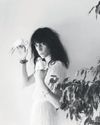
Calling The Shots: A Queer History of Photography
Offering an unprecedented view of photographic history through a queer lens, this is a wonderful and powerful book, says
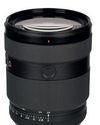
Large-aperture standard zoom, too
SONY has also revealed a new premium standard zoom, the FE 28-70mm F2 GM.

Super-fast, high-res Sony Alpha Ai II
SONY has announced its new professional full-frame flagship camera, the Alpha A1 II.
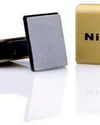
39 awesome accessories
Our round-up of the best accessories we've used and reviewed this year, along with some old favourites. There's something here for every budget, starting from just £7, including tripods, bags, filters and much more
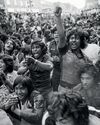
Such a thing as society
This autumn sees the launch of a major new book and exhibition devoted to examining the multiplicities of photography during 1980s Britain. Peter Dench finds out more

Join Club
The sociable Canvey Island Photographic Club is keen to grow its in-person meet ups
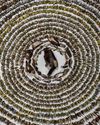
Capturing flight
Winners and finalists of Bird Photographer of the Year share their tips for success with Hollie Latham Hucker
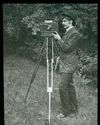
140 years of change
AP has become the world’s oldest surviving consumer photo magazine because we have moved with the times, says Nigel Atherton

Preserving history in platinum
A deep dive into the meticulous art of platinum printing, and the collaboration between the Royal Geographical Society and Salto Ulbeek. Mike Crawford explores how they brought historical photographs to life with enduring beauty and precision
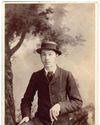
Life in the past lane
What was life like for an amateur photographer in 1884? John Wade takes a trip back in time